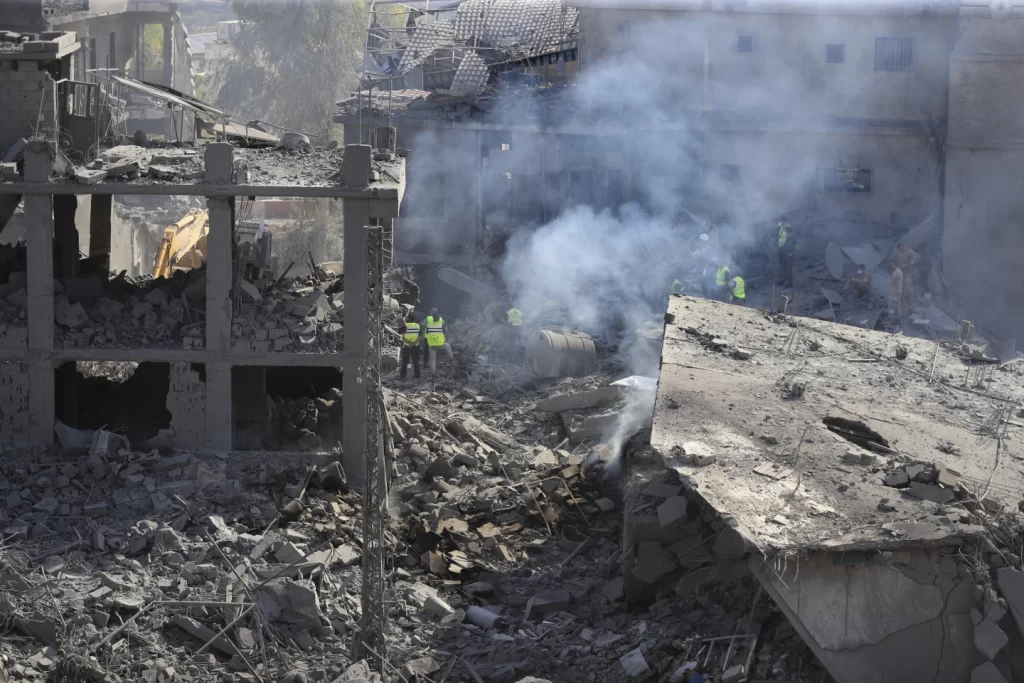At least 15 people have been killed in Israeli airstrikes on the southern Lebanese town of Qana, a location tragically familiar with civilian deaths in conflicts between Israel and Hezbollah. This latest incident has reignited painful memories and heightened tensions in the ongoing cross-border conflict.

Lebanon’s Civil Defense reported that 15 bodies had been recovered from a collapsed building, with rescue efforts continuing. The strikes on Qana, occurring late Tuesday, carry a grim resonance with past tragedies. In 1996, Israeli artillery shelling on a UN compound in Qana killed at least 100 civilians, and in 2006, an Israeli strike on a residential building claimed nearly three dozen lives, including many children.
The Israeli military has not immediately commented on the Qana strikes.

Simultaneously, Israel has expanded its offensive, striking Beirut’s southern suburbs early Wednesday for the first time in nearly a week. These strikes targeted the Dahiyeh area, known for its strong Hezbollah presence but also home to many civilians. The Israeli military claimed to have targeted an arms warehouse under a residential building, though no evidence was provided.
In the southern city of Nabatiyeh, Israeli airstrikes killed at least five people, including the city’s mayor, Ahmad Kahil. The attacks destroyed a municipality building and followed earlier strikes that devastated the city’s century-old market area.

These escalations come amid a broader conflict that ignited on October 8, when Hezbollah began firing rockets into Israel in solidarity with Hamas following its attack on southern Israel. The conflict has since displaced approximately 1.2 million people in Lebanon and driven 60,000 Israelis from their homes in the north.
Lebanon’s Health Ministry reports that Israeli strikes have killed about 2,300 people in Lebanon since last October, with over three-quarters of these deaths occurring in the past month. On the Israeli side, Hezbollah’s attacks have claimed nearly 60 lives, split almost evenly between civilians and soldiers.

The conflict intensified after Israel’s invasion of Lebanon earlier this month, following airstrikes that reportedly killed Hezbollah leader Hassan Nasrallah and most of his senior commanders. Israel has vowed to continue its offensive until its citizens can safely return to border communities.
Efforts for a ceasefire, brokered by the United States, Egypt, and Qatar, have stalled, with Hezbollah insisting it will maintain attacks until a ceasefire is reached in Gaza.
AP



